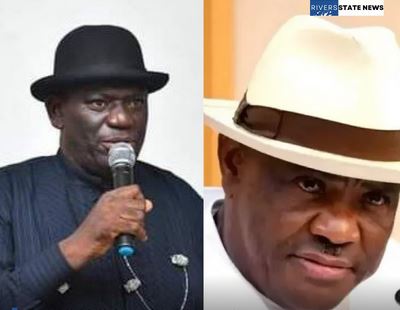
HARARE – Political tensions are reaching a boiling point in Zimbabwe as President Emmerson Mnangagwa faces mounting resistance over his alleged plans to extend his rule beyond his second and final term in 2028. The growing unrest has triggered nationwide anxiety, with opposition forces, war veterans, and ordinary citizens preparing for mass protests against his continued grip on power. The country is on edge as liberation war veterans, once staunch allies of the ruling party, now spearhead calls for an ‘uprising’ aimed at forcing Mnangagwa to step down.
The ex-combatants, many of whom played a key role in the 2017 military intervention that ousted Robert Mugabe, have shifted their support to Vice President Constantino Chiwenga, whom they believe is better suited to lead Zimbabwe. They accuse Mnangagwa of economic mismanagement and failing to address the country’s deepening economic crisis. Tomorrow’s planned demonstrations, expected to draw thousands, signal the most significant political challenge to Mnangagwa since he assumed office in 2017.

Economic hardship, rampant corruption, and accusations of authoritarian rule have fuelled widespread discontent, creating a climate ripe for mass resistance. Analysts have drawn parallels between the current situation and the 2017 coup that saw Mnangagwa ascend to power following Mugabe’s removal. According to Professor Ricky Mukonza, an Associate Professor of Public Affairs at Tshwane University of Technology (TUT), Zimbabwe’s military remains a key player in determining the country’s political future.
“You’ve got to understand the political dynamics in Zimbabwe and who seems to hold the power. Anyone with influence over the military has significant leverage in power politics,” Mukonza said. “The deputy president, Constantino Chiwenga, has been a military leader for a long time and is believed to wield serious influence.
What remains to be seen is who truly controls the armed forces.” Mnangagwa, however, is reportedly seeking ways to remain in power, despite constitutional limits. His allies, including powerful businessmen and military figures, are said to be working behind the scenes to ensure his continued rule.
Critics argue that the recent unexplained $50 payments to police officers, allegedly funded by Mnangagwa’s close associates Wicknell Chivhayo and Kuda Tagwirei, are part of a broader strategy to secure the loyalty of security forces ahead of potential unrest. While government officials have dismissed claims of an impending “palace coup,” insiders suggest that divisions within the ruling ZANU-PF party are deepening, with factions emerging around Mnangagwa and Chiwenga. As Zimbabwe heads into a weekend of high political stakes, all eyes are on how the security forces will respond to the protests.
The Zimbabwean public, long accustomed to economic turmoil and political repression, now finds itself at a crossroads. Will Mnangagwa cling to power through force, or will his opponents gain enough traction to force his departure? The unfolding events could determine the country’s leadership for years to come. For now, Zimbabwe holds its breath.
.















